Fall 2022 Events
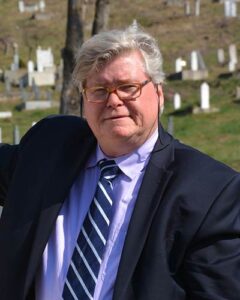
What Should Philosophers Say About Genocide?
David Pettigrew
Professor of Philosophy
Southern Connecticut State University
Friday, Sept. 9 at 3 p.m.
Ruane 105
How can philosophical reflection on the causes and consequences of genocide help prevent its recurrence? David Pettigrew, who accompanied the government exhumation team in Bosnia in the wake of the 1992-1995 genocide, will address the tragedy of genocide and our responsibility to bear witness and defend the abiding importance of historical truth.
David Pettigrew, professor of philosophy at Southern Connecticut State University, serves as a member of the steering committee of the Yale University Genocide Studies Program. He lectures and writes widely on the Bosnian genocide, and has co-edited or co-translated 12 books bearing on French philosophy and psychoanalysis.
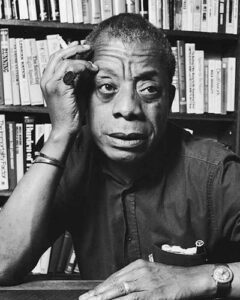
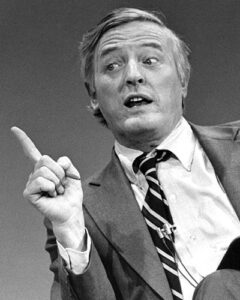
The Frederick Douglass Project
Screening and Discussion:
The Great Debate: James Baldwin vs. William F. Buckley on Slavery and the American Dream
Friday, Sept. 16
3 p.m. Ruane 105
“Has the American Dream been achieved at the expense of the American Negro?” This was the question set before two of “Has the American Dream been achieved at the expense of the American Negro?” This was the question set before two of America’s leading writers and intellectuals in this 1965 Cambridge University debate, which pitted the African American novelist and essayist James Baldwin against National Review founder and conservative heavyweight William F. Buckley. The ensuing debate—over America’s founding promise, its stained history, its unparalleled achievements, its complex present and uncertain future—resonates today every bit as much as in 1965. Please join us for a viewing and lively discussion of this timeless and timely inquiry into American opportunity and the legacy of slavery.
Screening and discussion hosted by Professor Iain Bernhoft, a member of the Providence College Department of English and director of The Frederick Douglass Project.
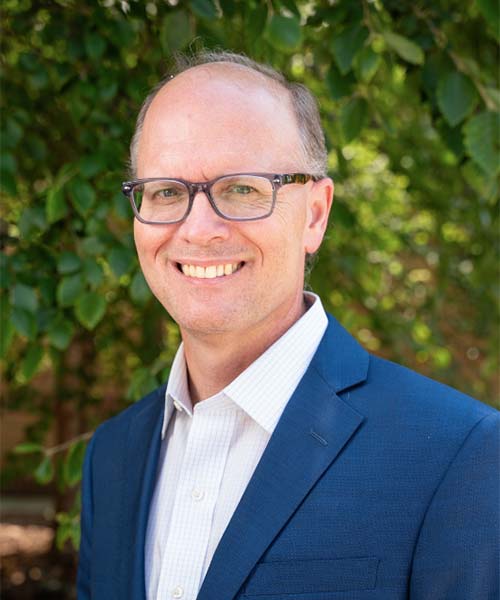
Edmund Burke, the French Revolution, and the Birth of Modernity
Jeffrey Nelson
Executive Director and CEO
Russell Kirk Center for Cultural Renewal
Friday, Sept. 23 at 3 p.m.
Ruane 105
Jeffrey Nelson is executive director and CEO of the Russell Kirk Center for Cultural Renewal. For three decades prior, he held senior roles in the Intercollegiate Studies Institute (ISI). He was editor of The Intercollegiate Review: A Journal of Scholarship and Opinion and was founding editor and publisher of ISI Books. He served as president of Thomas More College of Liberal Arts and is treasurer of the Edmund Burke Society of America, whose journal he edits.
Much has been written about Edmund Burke’s response to the French Revolution and to his thoughts about the distinctive character of modern ideological politics, and especially about ideas aimed a radically transforming every aspect of civil social life. Burke was the first to detect something new in the air about the fanatical French proposals and the potential they had to move beyond France and alter the traditional character of Britain, and indeed, threaten the entire commonwealth of European nations. This talk seeks to trace some of the key the sources of Burke’s anti-revolutionary mind. It will attempt to better understand and appreciate Burke’s powerful rebuke to political fanaticism, as well as to shed light on how we might yet better educate a new generation to resist the siren calls of radical transformation of politics, society, and now human nature itself. Instead fostering in them an allegiance to those enduring arrangements that Burke understood to be indispensable supports of wisdom and virtue, order and liberty.
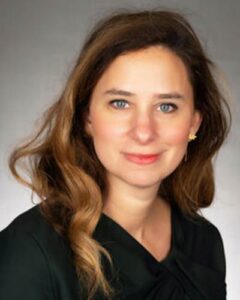
In honor of Louis Verza
The Inaugural St. Albert the Great Lecture in Science and Humanities
Meaning in Medicine
Kristin Collier
Associate Professor of Internal Medicine and Director of the Program on Health, Spirituality, and Religion
University of Michigan Medical School
Thursday, Oct. 6 at 3 p.m.
Ruane 105
Medicine is a practice focused on human beings and is a human profession in its purest form. Today there is disenchantment in the calling of medicine wrought through the sciences and technical knowledge that have crowded out wisdom. Science by itself cannot tell us how medicine ought to be. The practice of medicine ought to be built upon the wisdom of the humanities in order to ensure the science of medicine is humane. To see what medicine is, one must therefore look beyond the scope of science and technology, to the very heart of medicine as a practice.
Kristin Collier, MD, FACP is an assistant professor of internal medicine at the University of Michigan in Ann Arbor Michigan where she serves as the director of the University of Michigan Medical School Program on Health, Spirituality, and Religion. She received her medical degree from the University of Michigan Medical School and completed her internship, residency, and chief residency at The University of Michigan Hospitals. Her academic interests are in the overlap of spirituality, religion, and medicine and her peer reviewed work has been published in JAMA Internal Medicine, the Annals of Internal Medicine, The Journal of General Internal Medicine, the American Journal of Hospice and Palliative Medicine. She also has had writings published in Notre Dame’s Church Life Journal, Theopolis, and America Magazine.
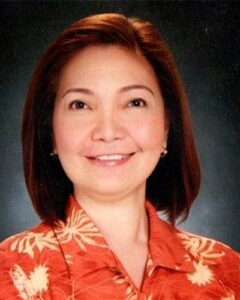
And the Machine Became Flesh and Dwelt Among Us: Refiguring the New Human in Karol Wojtyla’s Christian Personalism
Alma Espartinez
Associate Professor of Philosophy
University of Santo Tomas, Philippines
Friday, Oct. 14 at 3 p.m.
Ruane 105
What is transhumanism? What are the ethical implications of human enhancement? Alma Espartinez will explore these questions in the light of and in conversation with Karol Wojtyla’s (Pope St. John Paul II) concept of Christian personalism. This lecture will reveal the ways in which human enhancement intervention undermines human dignity and threatens to create a posthuman that is no longer human.
Alma Espartinez is associate professor of philosophy at the University of Santo Tomas in Manila, Philippines, and is a visiting professor at Providence College for academic year 2022-2023. She was a Fulbright scholar in residence at Dominican University of California in 2010-2011, and from 2016-2019 was vice president for academic affairs and dean of the graduate school at Holy Angel University in Angeles City, Philippines.
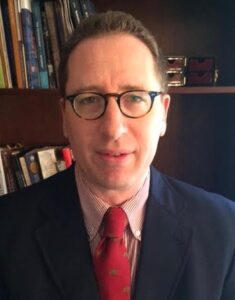
The Frederick Douglass Project
Sponsored by the Jack Miller Center
What Do the Humanities Do?
Eric Adler
Professor and Chair, Department of Classics
University of Maryland
Friday, Oct. 21 at 3 p.m.
Ruane 105
In the late nineteenth century, the United States witnessed the so-called Battle of the Classics in which educators fought over the role of Latin and ancient Greek in college curricula. Contemporary apologists for the modern humanities present the same skills-based defenses of their subjects that traditionalists in the Battle of the Classics provided for the classical languages. And yet defenders of the humanities need to reconnect with what the humanities do — to articulate the unique and essential contribution that humanism makes to an educated person.
Eric Adler is professor of classics and chair of the classics department at the University of Maryland. His scholarly interests include Roman historiography, Latin prose, the history of classical scholarship, and the history of the humanities. He is the author of three books including The Battle of the Classics: How a Nineteenth-Century Debate Can Save the Humanities Today (Oxford, 2020) and Classics, the Culture Wars, and Beyond (Michigan, 2016). He has taught at Rice University, the University of Minnesota, and Connecticut College. In 2020, he joined the editorial board of Humanitas.
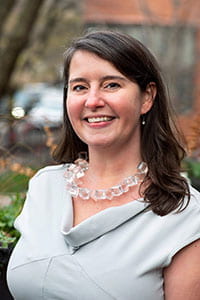
Immediacy, Or the Style of Too-Late Capitalism
Anna Kornbluh
Professor of English
University of Illinois, Chicago
Friday, Oct. 28 at 3 p.m.
Ruane 105
The stagnating G7 economies and the climate crisis are putting the squeeze on art. In literature, television, and culture in general, there’s a dominant style of urgent on-demand direct-access, an extreme flatness, which reflects capitalism’s quest to speed up circulation. “Immediacy” is a name for this rushed exchange, which helps explain the thinning of mediation in trends like the superabundance of fourth-wall breaking in streaming shows, the plummeting of third-person narration in novels, and the vogue for “immersive” unmuseums.
Anna Kornbluh is professor of English and director of graduate studies at the University of Illinois, Chicago. She is the author of The Order of Forms: Realism, Formalism, and Social Space (Chicago, 2019), Marxist Film Theory and Fight Club (Bloomsbury, 2019), and Realizing Capital (Fordham, 2014), and a new manuscript: Immediacy, Or, The Style of Too-Late Capitalism. She has published essays on psychoanalysis, climate fiction, academic labor, and television. She is the founding facilitator of the V21 Collective (Victorian studies for the 21st Century) and InterCcECT (The Inter Chicago Circle for Experimental Critical Theory).
Members of the Providence College community can watch the video at: https://web.microsoftstream.com/video/8f6aca56-a41a-42bd-a658-8508689f8770.
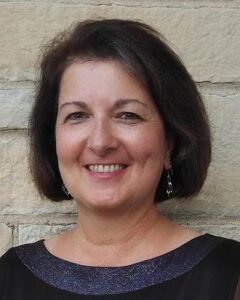

Blessed Pier Giorgio Frassati’s Ordinary Path to Holiness
Christine Wohar
Executive Director
FrassatiUSA
Friday, Nov. 4 at 3 p.m.
Ruane 105
Christine Wohar offers an intimate glimpse into the life and spirituality of Blessed Pier Giorgio Frassati, whose 24 short years of life have inspired Christians all over the world. Frassati seamlessly incorporated his love of God and his Catholic faith into everyday life. As Pope St. John Paul II said: “Pier Giorgio’s life testifies that holiness is possible for everyone.”
Christine Wohar is a graduate of the Vanderbilt University School of Law and holds an MBA from the University of Pittsburgh. Working closely with the Frassati family, she founded FrassatiUSA — a non-profit organization that works to promote the spirituality of Pier Giorgio and to further his cause for canonization. She writes and speaks extensively on Frassati and has hosted and contributed to programming about Frassati for EWTN.
Blessed Pier Giorgio Frassati’s Ordinary Path to Holiness
Christine Wohar
Executive Director
FrassatiUSA
Friday, Nov. 4 at 3 p.m.
Ruane 105
Christine Wohar offers an intimate glimpse into the life and spirituality of Blessed Pier Giorgio Frassati, whose 24 short years of life have inspired Christians all over the world. Frassati seamlessly incorporated his love of God and his Catholic faith into everyday life. As Pope St. John Paul II said: “Pier Giorgio’s life testifies that holiness is possible for everyone.”
Christine Wohar is a graduate of the Vanderbilt University School of Law and holds an MBA from the University of Pittsburgh. Working closely with the Frassati family, she founded FrassatiUSA — a non-profit organization that works to promote the spirituality of Pier Giorgio and to further his cause for canonization. She writes and speaks extensively on Frassati and has hosted and contributed to programming about Frassati for EWTN.
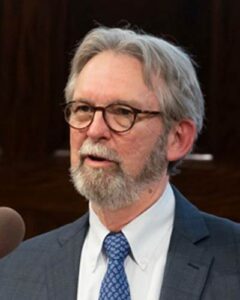
The Conversion of the Imagination: Paul as Interpreter of Israel’s Scripture
Richard B. Hays
George Washington Ivey Professor Emeritus of New Testament
Duke University
Due to unforeseen circumstances, this event has been postponed.
Friday, Nov. 11 at 3 p.m.
Ruane 105
For a long time, modern interpreters saw Paul’s use of Scripture as simple prooftexting, heedless of the original sense of the Old Testament texts. But Paul was a sophisticated, poetic reader who saw Israel’s Scripture as the saga of God’s election and redemption of a people through time. The apostle’s letters seek to teach his readers how to read backwards to discover scripture’s formative power for the new Christian community.
Richard B. Hays is the George Washington Ivey Professor Emeritus of New Testament at Duke University. He served on the faculty of Yale Divinity School from 1981-1991, and then on the faculty of Duke University from 1991 until his retirement in 2018. From 2010-2015, he was the Dean of Duke Divinity School. Hays’ work has bridged the disciplines of biblical criticism and literary studies, exploring the innovative ways in which early Christian writers interpreted Israel’s Scripture. He has also consistently sought to demonstrate how close reading of the New Testament can inform theological reflection.
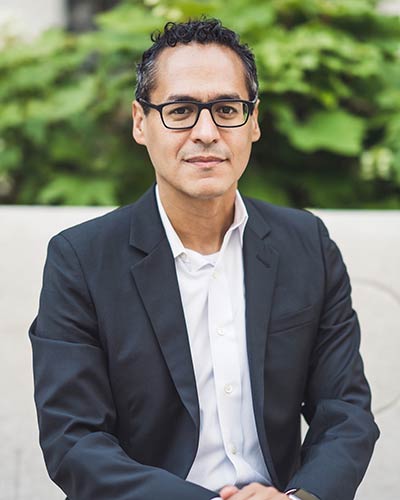
Rescuing Socrates: How Great Books Can Change Lives and Why They Matter for a New Generation
Roosevelt Montás
Senior Lecturer in American Studies and English
Columbia University
Friday, Nov. 18 at 3 p.m.
Ruane 105
What is liberal education? What can that practice mean today? Is the traditional liberal arts curriculum adequate for today’s world? Can a liberal arts education still be transformative for students who enter college looking for career education? Roosevelt Montás will address these and related topics drawing on his experiences as a student, faculty member, and academic administrator.
Roosevelt Montás is senior lecturer in American studies and English at Columbia University. He specializes in antebellum American literature and culture, with a particular interest in American citizenship. His dissertation, Rethinking America: Abolitionism and the Antebellum Transformation of the Discourse of National Identity, won Columbia University’s 2004 Bancroft Award. Montás teaches courses on moral and political thought as well as seminars in American studies. He is the author of Rescuing Socrates: How the Great Books Changed My Life and Why They Matter for a New Generation.
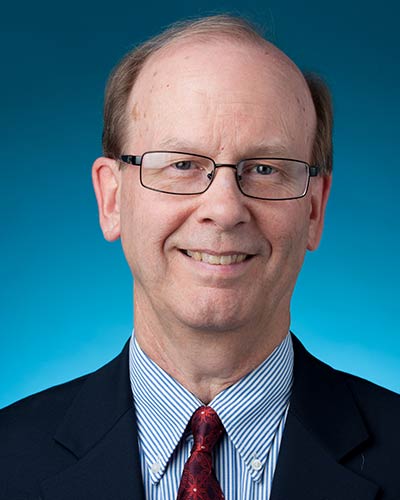
Participating in Christ: The Heart of Paul’s Theology and Spirituality
Michael J. Gorman
Raymond E. Brown Chair in Biblical Studies and Theology
St. Mary’s Seminary and University
Friday, Dec. 2 at 3 p.m.
Ruane 105
This lecture will suggest that the heart of Paul’s spirituality and theology is his conviction that people can be “clothed” with Christ, wrapped up in him and his story, both individually and corporately. The result is a community that challenges the status quo and infuses the world with authentic life by its unique practices of cross-shaped faith, love, power, justice, peace, and hope. To be in Christ and have Christ within is the animating power of this life together.
Michael J. Gorman holds the Raymond E. Brown Chair in Biblical Studies and Theology at St. Mary’s Seminary & University in Baltimore. He is the author of many essays and author or editor of nearly 20 books. His latest volumes on Paul are Romans: A Theological and Pastoral Commentary (Eerdmans, 2022) and Participating in Christ: Explorations in Paul’s Theology and Spirituality (Baker Academic, 2019). A United Methodist layperson, he is a frequent lecturer at churches, institutions of higher education, and clergy gatherings of many traditions in the U.S. and abroad.
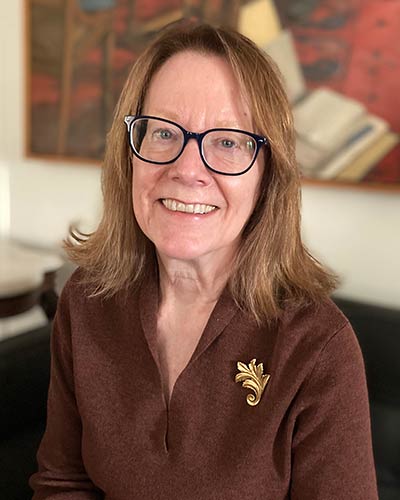
From Cross to Crucifix: The Contrasting, Evolving, and Controversial Depictions of Christ’s Passion in Art through the Ages
Robin Jensen
Patrick O’Brien Professor of Theology
University of Notre Dame
Friday, Dec. 9 at 3 p.m.
Ruane 105
This illustrated lecture will discuss the appearance and visual depiction of the cross and Christ’s passion in Western and Eastern art during the first six centuries after Christ, contrasting them with the images of the crucifixion that emerged in the early and high Middle Ages. Noting the transformation of Christ from a triumphant victor into a suffering and sacrificial victim, the lecture will conclude with a survey of modern images of the Passion that reprise as well as challenge earlier ones.
Robin Jensen studies and publishes on the relationship between early Christian art and literature and the ways that visual images and architectural spaces should be regarded as modes of theological expression. Her published essays and books contend that, in addition to interpreting sacred texts, visual images enhance liturgical settings, reflect the nature and content of devotional piety, and explicate ritual practices. She teaches courses on the character of late antique Christian and Jewish art, the history and evolution of Christian architecture, the iconography of the cross and crucifix, depictions of Christ and the Virgin Mary, and the place and controversies over images and idols in ancient and early medieval Christianity.





